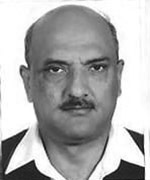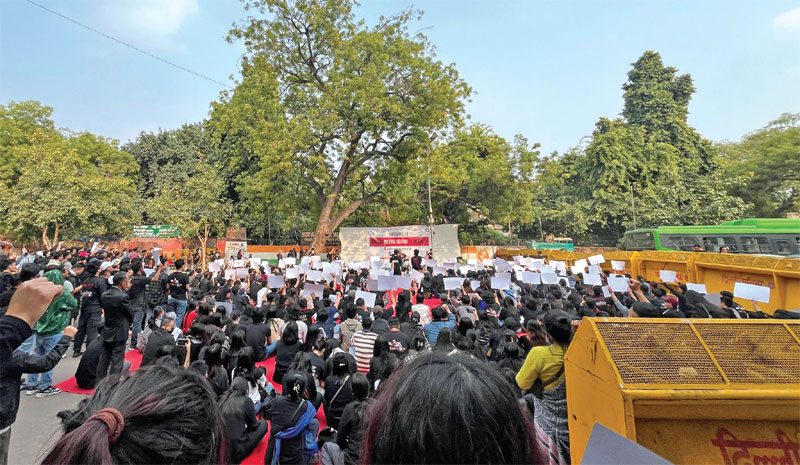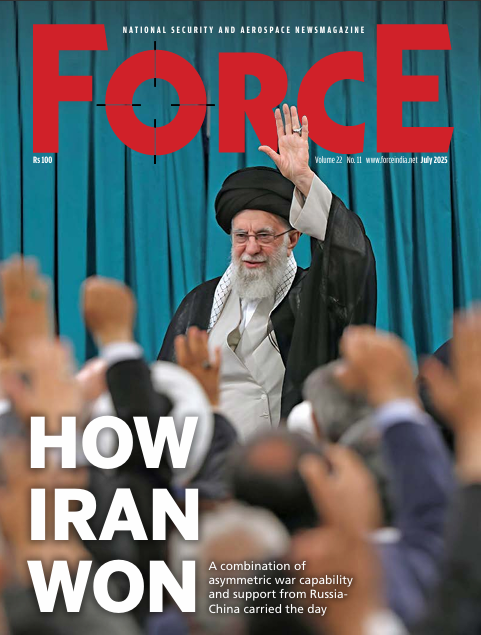Time to Heal
 S.K. Sood
S.K. Sood
The resignation of Manipur chief minister N Biren Singh on February 10 and subsequent imposition of the President’s Rule has come after 22 months of mayhem in the state. The violence has led to loss of over 250 lives and as many as 75,000 innocents being internally displaced. The distrust between the communities, especially Kuki and Meitei, is so much that the security forces have had to create a buffer between them. Such a situation had not occurred even during the Partition when there were enclaves of peace like Nuh, Malerkotla etc., and many areas in Sindh where the minorities were protected by the majority communities.
Biren Singh’s government has lost legitimacy in the eyes of all communities and should have been removed immediately after large scale violence started on 3 May 2023. Or, he should have resigned when that reprehensible rape and parading of Kuki women came to light a couple of months later. It is a sad commentary on the priority accorded by policymakers to this very important and sensitive region of the country.
Many people even in Manipur--including from his own Meitei community--consider Biren Singh to be the ‘villain of the piece’. A report by the Truth lab of Hyderabad--which has opined that the voice samples of Biren Singh allegedly match 93 per cent with the voice on the controversial tapes--confirms this impression. The inaction displayed by Manipur government under Biren Singh’s leadership and lack of will by the central government in controlling the situation for so long is inexplicable.
Even though belated, the resignation by Biren Singh and imposition of President’s Rule should pave the way for initiating steps to bring the situation back to normal. The suspicion amongst communities is so deep rooted that bringing normalcy will be a long-drawn affair.

The Kuki community held a peaceful rally in New Delhi on March 1 urging a political solution for their grievances
Immediate Measures
However, a start has to be made and the first step should be to contain widespread violence. Imposition of the President’s Rule will enable the centrally controlled armed forces viz Central Reserve Police Force (CRPF), Border Security Force (BSF), Indo-Tibetan Border Police (ITBP), Sashastra Seema Bal (SSB) etc., besides the Indian Army, to operate freely. The President’s Rule should be accompanied by the extension of Armed Forces Special Powers Act (AFSPA) in the entire state.
It has been argued that AFSPA is draconian and prone to misuse because of the disproportionate powers it confers on the armed forces. There is apprehension that the imposition of AFSPA will lead to human rights violations. However, with it being already imposed in hill areas of the state. Hence, there is no valid reason to exclude 13 police stations of the valley--dominated by Meitei community--from its ambit. The circumstances prevalent in Manipur dictate that AFSPA be imposed in the entire state if violence has to be controlled.
Imposition of AFSPA uniformly all over the state will enable the central forces to operate freely and carry out search and recovery of over 6,000 weapons and large quantity of ammunition ‘looted’ from Manipur armed police and reserve battalions, besides the large cache of weapons that is available with various militant organisations active in Manipur. It will also enable the central forces to act promptly, without waiting for the arrival of police representative, when they receive intelligence. Manipur police on its own is incapable of retrieving these looted weapons because of two reasons. Firstly, it is widely believed to be partial to the Meitei community and that most of these looted weapons are with the majority Meitei community in the valley area. Secondly, the police is divided on ethnic lines--with Kuki police personnel deployed in Kuki dominated areas and Meitei personnel deployed in Meitei dominated areas. Hence, the police is unlikely to operate freely against its own people.
The Manipur governor’s appeal to surrender weapons has not elicited adequate response--less than 100 weapons have been surrendered up to the deadline fixed. The central forces therefore will need all the necessary powers including AFSPA to bring back normalcy.
The next step in the normalisation process should be to begin demobilisation of existing insurgent groups like the Arambai Tengol, Metei Lipun, and the Kuki groups. These groups have been indulging openly in violence and obstructing the security forces from carrying out their operations. These militant groups must therefore be demobilized at the earliest. Many members of these militant groups move about in
Subscribe To Force
Fuel Fearless Journalism with Your Yearly Subscription
SUBSCRIBE NOW
We don’t tell you how to do your job…
But we put the environment in which you do your job in perspective, so that when you step out you do so with the complete picture.








